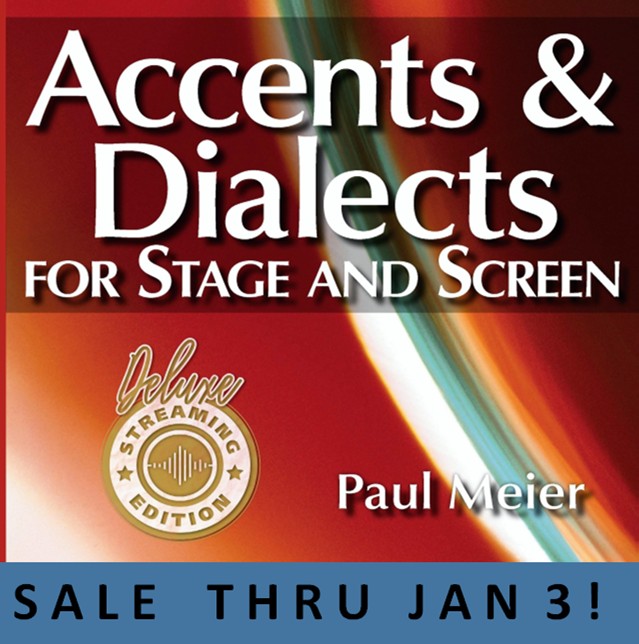Macedonia 1
Listen to Macedonia 1, a woman in her 20s from Skopje, Macedonia. Click or tap the triangle-shaped play button to hear the subject.
Both as a courtesy and to comply with copyright law, please remember to credit IDEA for direct or indirect use of samples. IDEA is a free resource; please consider supporting us.
BIOGRAPHICAL INFORMATION
AGE: 20s
DATE OF BIRTH (DD/MM/YYYY): 1970s
PLACE OF BIRTH: Skopje, Macedonia
GENDER: female
ETHNICITY: Macedonian
OCCUPATION: Ph.D student
EDUCATION: university degree
AREA(S) OF RESIDENCE OUTSIDE REPRESENTATIVE REGION FOR LONGER THAN SIX MONTHS:
The subject lived in Skopje all her life until moving to Kansas, in the United States, in August of 2000.
OTHER INFLUENCES ON SPEECH:
The subject was taught British English in school, starting in the fifth grade, continuing all through high school. Since college, she has mainly learned English from using the Internet, and reading literature for computer science, her major field of study.
The text used in our recordings of scripted speech can be found by clicking here.
RECORDED BY: Hannah Ballou (under the supervision of Paul Meier)
DATE OF RECORDING (DD/MM/YYYY): 03/30/2001
PHONETIC TRANSCRIPTION OF SCRIPTED SPEECH: N/A
TRANSCRIBED BY: N/A
DATE OF TRANSCRIPTION (DD/MM/YYYY): N/A
ORTHOGRAPHIC TRANSCRIPTION OF UNSCRIPTED SPEECH:
I was born in Macedonia, in its capital, Skopje, more than twenty-five years ago, where I was living ’til August 2000. I was there almost all the time. I haven’t been living anywhere else during that time, so I was born there and I was living there. I got my education there also. I finished university, computer science. And right now, I’m here in United States in Kansas. I’m a graduate student at Kansas University. The official language is Macedonian. But there are a lot of dialects according to the area in Macedonia, so people speak different dialects. There are areas that seem, especially for the strangers, that seem kind of different than the Macedonian language because the dialect if very different. But we understand each other. Also since there are groups of minorities, Albanian language is spoken, Turkish language also, and different minorities also speak their own languages, like gypsy language, like Serbo-Croatian language and so on. There is, as far as I know, there is a region in Greece, in Northern Greece, called Macedonia. And people over there, old people, some of them know Macedonian, some dialect of Macedonian language and they can speak that. Our country is, was, part of former Yugoslavia, and it was called Republic of Macedonia at that time, and now it’s an independent country with name Republic of Macedonia. So far, it’s named Former Republic of Macedonia because of that conflict with Greece, because they somehow do not allow us to have that name Macedonia, as Macedonia. We have four weather seasons, so we have all kinds of weather, like spring summer fall and winter. We have everything, like fields, like mountains, lakes. We have one big river that flows through the central part of Macedonia, so it divides Macedonia actually into left and right side, or east and west side. So you can find places for skiing, you can find places for summer holiday. You can find some fields for growing different vegetables or cultures and everything else, fruits. Here’s my favorite saying or statement and it says: Boze, daj mi sila da go izdrzam ona shto nemozam da go smenam; hrabrost da go smenam ona shto mozam; mudrost da go razlikuvam ednoto od drugoto. [English translation: God give me strength to endure the things I cannot change, courage to change the things I can, and wisdom to distinguish between the two.]
TRANSCRIBED BY: Hannah Ballou (under the supervision of Paul Meier)
DATE OF TRANSCRIPTION (DD/MM/YYYY): N/A
PHONETIC TRANSCRIPTION OF UNSCRIPTED SPEECH: N/A
TRANSCRIBED BY: N/A
DATE OF TRANSCRIPTION (DD/MM/YYYY): N/A
SCHOLARLY COMMENTARY: N/A
COMMENTARY BY: N/A
DATE OF COMMENTARY (DD/MM/YYYY): N/A
The archive provides:
- Recordings of accent/dialect speakers from the region you select.
- Text of the speakers’ biographical details.
- Scholarly commentary and analysis in some cases.
- In most cases, an orthographic transcription of the speakers’ unscripted speech. In a small number of cases, you will also find a narrow phonetic transcription of the sample (see Phonetic Transcriptions for a complete list). The recordings average four minutes in length and feature both the reading of one of two standard passages, and some unscripted speech. The two passages are Comma Gets a Cure (currently our standard passage) and The Rainbow Passage (used in our earliest recordings).
For instructional materials or coaching in the accents and dialects represented here, please go to Other Dialect Services.
 IDEA: International Dialects of English Archive
IDEA: International Dialects of English Archive




